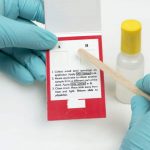
Dextroamphetamine is a stimulant drug used to treat narcolepsy and ADHD in adults and children.
Dextroamphetamine is a sympathomimetic amine drug that mimics natural chemicals in the body that stimulate the sympathetic nervous system.
Dextroamphetamine increases the concentration of dopamine and norepinephrine in the brain, stimulating the central nervous system. It promotes the release of these neurotransmitters and blocks their reuptake after neurotransmission.
Dopamine and norepinephrine regulate movement, attention, memory, motivation, and pleasure. Increasing their levels improves concentration and reduces hyperactivity and impulsive behaviors associated with ADHD, as well as improving daytime wakefulness in narcolepsy patients.
Stimulants like dextroamphetamine also increase heart rate, blood pressure, blood glucose, and dilate the respiratory tract. They have a high potential for abuse and dependence, and are used illegally. Athletes have used amphetamine class drugs for performance enhancement, which are banned by the WADA.
Contents
Warnings
- Do not use dextroamphetamine in patients with the following conditions:
- Hypersensitivity to sympathomimetic amines
- Symptomatic cardiovascular disease, hypertension, or advanced plaque formation in the arteries
- Hyperthyroidism
- Glaucoma
- Prescribe dextroamphetamine sparingly, as patients may obtain it for recreational use or distribution
- Prolonged use can lead to drug dependence
- Misuse can cause sudden death and serious cardiovascular adverse events
Side Effects
Common side effects of dextroamphetamine include loss of appetite, abdominal pain, nausea, vomiting, diarrhea, constipation, indigestion, dry mouth, unpleasant taste, weight loss, insomnia, nervousness, mood swings, euphoria, uneasiness, erratic muscle movements, dizziness, tremor, headache, infection, fever, fatigue, palpitations, rapid heart rate, increased blood pressure, hives, hair loss, impotence, changes in libido, frequent or prolonged erections, breakdown of muscle cells, peripheral vascular disease, abuse and dependence, withdrawal symptoms, exacerbation of tics, and psychotic episodes.
Call your doctor for medical advice about serious side effects or adverse reactions. You may also report side effects or health problems to the FDA at 1-800-FDA-1088.
Dosages
Capsule, Extended-Release (Dexedrine): Schedule II
Tablet, Immediate-Release (Zenzedi): Schedule II
Oral Solution (ProCentra): Schedule II
Adult:
Narcolepsy
- 10 mg/day orally; may titrate every week until side effects appear
- Not to exceed 60 mg/day
- 5 mg orally once or twice a day (4-6 hours apart); may increase 5 mg/day every week until optimal response
- Rarely necessary to exceed 40 mg/day
Pediatric:
Children younger than 3 years
- Safety and efficacy not established
Children 3-5 years
- Initial: 2.5 mg orally once a day
- May increase by 2.5 mg/day every week
Children 6 years or older
- Initial: 5 mg orally once or twice a day (4-6 hours apart); may increase by 5 mg/day every week until optimal response
- Maintenance: 5-15 mg orally once every 12 hours OR 5-10 mg orally every 8 hours
- May substitute with every day dosing of extended-release capsules
- Rarely necessary to exceed 40 mg/day
Narcolepsy
Children older than 12 years
- 10 mg orally once a day initially
- May increase by 10 mg every week to optimal response
Geriatric:
Narcolepsy
- Start at lowest dose
- 5 mg/day orally; may increase the dose by 5 mg/day every week until side effects appear
- Not to exceed 60 mg/day
Addiction/Overdose
- Dextroamphetamine has a high potential for abuse and dependence. Misuse may cause sudden death and serious cardiovascular adverse events.
- Symptoms of overdose include restlessness, tremor, hyperreflexia, rapid breathing, hallucination, cardiovascular symptoms, panic, fatigue, fever, and gastrointestinal symptoms. Severe overdose can cause convulsions, coma, and death.
- Treatment for overdose is symptomatic and supportive care. Undigested drug may be eliminated with gastric lavage and administration of activated charcoal and purgative. The CNS stimulant effects of dextroamphetamine may be neutralized by administering chlorpromazine, a sedative drug.
Drug Interactions
Inform your doctor of all medications you are currently taking, as there may be drug interactions. Never begin, discontinue, or change the dosage of any medication without your doctor’s recommendation.
- Severe interactions of dextroamphetamine include:
- iobenguane I 123
- isocarboxazid
- linezolid
- phenelzine
- procarbazine
- rasagiline
- safinamide
- selegiline
- selegiline transdermal
- tranylcypromine
Pregnancy and Breastfeeding
- There are no adequate and well-controlled studies of dextroamphetamine use in pregnant women, however, animal reproductive studies indicate that it can cause fetal harm. Use during pregnancy only if benefits outweigh risks.
- Dextroamphetamine is excreted in breast milk. Do not breastfeed while on dextroamphetamine therapy.
Other Considerations
- Dextroamphetamine is a Schedule II controlled substance
- Take dextroamphetamine as prescribed, do not exceed recommended doses
- Dextroamphetamine has a high risk for addiction and dependency
- In case of overdose, seek medical help or contact Poison Control
- Store dextroamphetamine safely out of reach of children
- Avoid driving or tasks requiring mental and physical ability
Subscribe to MedicineNet’s Children’s Health & Parenting Newsletter
By clicking "Submit," I agree to the MedicineNet Terms and Conditions and Privacy Policy. I also agree to receive emails from MedicineNet and I understand that I may opt out of MedicineNet subscriptions at any time.
Summary
Dextroamphetamine is a stimulant drug used to treat narcolepsy and ADHD. Common side effects include loss of appetite, abdominal pain, nausea, vomiting, diarrhea, constipation, indigestion, dry mouth, unpleasant taste, weight loss, insomnia, nervousness, mood swings, euphoria, and others. Do not use if breastfeeding. Consult your doctor if pregnant.


